
Avoiding and Treating Bruising
No one likes bruising. A bruise can cause discoloration to an area, and in some cases can be difficult to cover up. What is a bruise? A bruise is a collection of blood that occurs when a blood vessel is sheared. In plastic surgery, bruising can occur after injections such as Botox and facial fillers as well as surgical procedures, such as blepharoplasty, rhinoplasty and facelifting. This can be most troubling for those of us known as ‘bad bruisers” -those of us who bruise like a peach and find that even slight bumps lead to unsightly marks.
In recent years there is a growing intersection between Western and Eastern medicine. This is good news to patients, as many physicians are exploring the use of natural supplements in an effort to help expedite healing and avoid bruising. Much of the information, however, is based on anecdotal evidence, not a clinical trial.
This information is provided as a guide to help prevent and treat bruising.
Preventing a Bruising
Diet:
It is clear that specific foods can promote the fragility of blood vessels and bruising. Examples include green tea, red wine. Any blood thinner (see list) can cause bruising as well. Avoidance of any supplement or medication on this list before surgery is recommended. Never stop or take a medication without physician advice.
Certain foods can promote blood to become more viscous and less likely to leak from blood vessels. This especially includes foods containing Vitamin K such as cabbage, spinach, kale. In addition, pineapple naturally contains the supplement Bromelein.
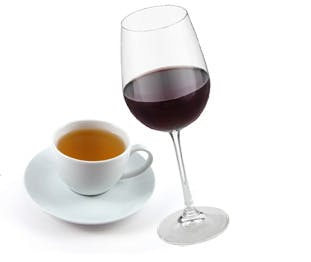
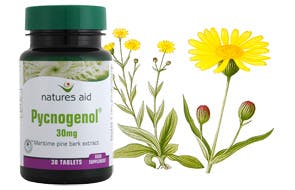
Supplements:
There are a variety of supplements that are touted to prevent bruising. The best known examples of this are Arnica Montana and Bromelein. Arnica Montana has been studied and appears to not have harmful effects and may appear to lessen the formation of bruising.
Arnica is thought to work by the use of the natural vasodilator Helenalin, which helps promote healing of the area in the region of the bruise. Bromelein is a similar supplement and is found in pineapples and can also help promote healing. Lesser known products include the use of Cyruta Plus, Cataplex ACP. Both of these products supposedly make blood vessels less fragile. Vitamin C is also thought to be important in helping strengthen protein.
Pycnogenol is a potent antioxidant made from the bark of pine trees. Among its components are proanthocyanidins, red pigments (also found in blueberries and grapes) that aid in strengthening capillaries, arteries and veins. Pycnogenol also can improve the elasticity of the skin by bonding to underlying collagen fibers. Bilberry extract contains anthocyanosides which are potent antioxidants which help stabilize collagen and make Vitamin C more effective
Topicals:
Prevedem topical is an antioxidant-rich cream applied to the face two weeks prior to an injection or procedure. The product contains Hamamelis Virginiana Extract, which is commonly known as Witch Hazel.
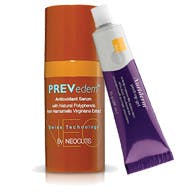
Treating a Bruising
A bruise can still occur despite everyone’s best efforts. So now what do you do? Learn more.
Immediately:
- Apply pressure
- Ice periodically
- Utilize diet tips, supplements, and topicals recommended for bruising (see below)
- Until a bruise has faded, it is ok to apply make up to appearance.
- Pat, don’t rub, a yellow based concealer onto area.
- Yellow undertones help to negate the purple/blue color in bruises more effectively that their pink based counterparts.
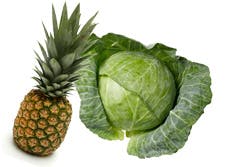
Diet:
Papain is derived from papaya and is thought to help break up the dead materials
responsible for the bruise. Patients should also continue to avoid blood thinners
and eat foods rich in Vitamin K and pineapple.
Eat vegetables rich in Vitamin K such as leafy greens and members of cabbage
family – broccoli, cabbage, or spinach
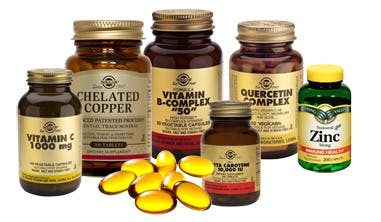 Supplements:
Supplements:
- Arnica and bromelein effects on both preventing and treating bruising has been well described. Bromelain is thought to heal faster by clearing metabolic waste.
- Vitamin A, vitamin C, beta-carotene, zinc and copper promote wound healing and tissue growth repair. Vitamin A and zinc also boost immune system function.
- High levels of selenium, bioflavonoids and other antioxidants deactivate unstable free-radicals that result from surgery.
- High levels of the B-Complex – the “anti-stress” vitamins – counteract stress during the surgical period.
- Homeopathic Arnica Montana 30X reduces bruising, swelling and pain associated with soft tissue injury.
- Bromelain blocks selected pro-inflammatory metabolites that accelerate the inflammatory process.
- Quercetin inhibits the manufacture and release of histamine and other allergic/inflammatory mediators.
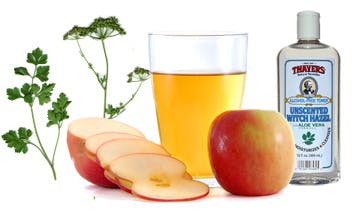 Topicals:
Topicals:
Auriderm cream is a vitamin K cream which can help diminish bruising
Prevdem L-arginine Topical.
You can also try some natural home remedies:
- Apple Cinder Vinegar mixed with warm water applied gently with a compress
- Apply Witch hazel compresses
- Crush parsley applied to the bruise. You may hold it in place with an adhesive bandage. It clears black and blue and has a healing effect.
Other Tips:
Kathi Keville, the author of Herbs for Health and Healing (Rodale, 1996), makes a bruise compress with one tablespoon tincture of arnica, St. John’s wort flowering tops, witch hazel bark or chamomile flowers, four drops of lavender essential oil, and two tablespoons cold water.
If you bruise easily, take 200 mg of vitamin C daily. Two other supplements that may help are Pycnogenol and bilberry extract. Pycnogenol is a potent antioxidant made from the bark of pine trees. Among its components are proanthocyanidins, red pigments (also found in blueberries and grapes) that aid in strengthening capillaries, arteries and veins. Pycnogenol also can improve the elasticity of the skin by bonding to underlying collagen fibers.
Bilberry extract, best known for improving vision and optical health, contains anthocyanosides; these are potent antioxidants that may help reduce or eliminate bruising by stabilizing collagen, increasing intracellular vitamin C levels and strengthening capillaries.
For serious bruising or deeper soft-tissue injuries take 200-400 mg of bromelain, a pineapple enzyme that speeds healing, possibly by helping the body clear metabolic wastes from injuries, three times a day on an empty stomach (at least 90 minutes before or three hours after eating).


